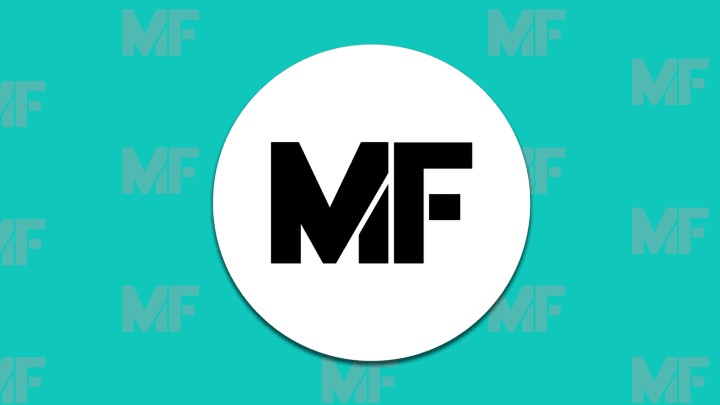This week Snapchat founders Evan Spiegel, 23, and Bobby Murphy, 25, made headlines by rejecting a reported $3 billion offer from Facebook. They're holding out for something better. Here are eight more tech companies that rejected huge buyout offers. Some made the smart decision. Others, not so much.
1) Yahoo! rejects $44.6 billion offer from Microsoft (2008)
In 2008, Google was on the rise, and there was nothing anyone could do about it. In a last ditch effort, Microsoft rushed to defend against a Google global takeover by offering to buy Yahoo! for $44.6 billion. Yahoo! co-founder Jerry Yang felt the offer was too low and rejected Microsoft’s bid. Unfortunately, after the rejection, Yahoo! stock plummeted, Yang left the company, and Microsoft moved on.
2) Groupon rejects $6 billion offer from Google (2010)
As Google’s global presence skyrocketed, the company sought to tap into local markets of the mom-and-pop variety in order to bolster profits. Naturally, Google shifted its gaze to Groupon, whose network had spread through North America, Latin America, and Europe. At the time, the company was gathering more than $1 billion in annual revenue. Google offered the company a $6 billion buyout, and Groupon CEO Andrew Mason rejected the offer. After the rejection, Groupon’s popularity waned and its profits bottomed out. Groupon fired Mason earlier this year.
3) Rovio rejects $2 billion offer from Zynga (2012)
Given the popularity of web games like FarmVille and CityVille in 2012, Zynga was on the hunt for the next big thing in social games. Zynga offered $2 billion to Rovio Entertainment Oy, the Finnish company that brought us the ever-addicting Angry Birds game. Rovio rejected the offer, and Zynga moved on to greener pastures in the mobile-game network.
4) Facebook rejects $1 billion offer from Yahoo! (2006)
In the early days of Facebook, Mark Zuckerberg confronted offers left and right. In 2005, Zuckerberg was in negotiations with MySpace CEO Chris DeWolfe about a Facebook buyout. When Zuckerberg insisted on an asking price of $75 million, DeWolfe balked. Early in 2006, Viacom offered Facebook $750 million; Zuckerberg raised his asking price to $2 billion, and Viacom snubbed the deal. Later that year, Yahoo! entered the picture and made an offer of $1 billion to Facebook. Yahoo! was quickly losing the interest of its younger demographic and saw Facebook as its last chance to catch the attention of wide-eyed youngsters. Zuckerberg eventually rejected the Yahoo! offer. Instead, Facebook made a deal with Microsoft to acquire the company’s Atlas Solutions, an ad-serving product Microsoft purchased in 2007.
5) Twitter rejects $500 million offer from Facebook (2008)
In 2008, Twitter’s popularity was on the rise, and Facebook quickly jumped at the chance to buy the company. Twitter rejected the offer for a couple of reasons. First, Facebook’s offer was an all-stock offer, and Twitter wanted cash. Twitter believed Facebook’s valuation was inflated, meaning the stock was far less valuable than Facebook claimed. Second, Twitter had high hopes for a secret revenue model that they hoped to launch in 2009. This month, Twitter finally went public. The company, which set its IPO pricing at $26 per share, saw its share price soar to $45.10 because of strong investor demand. The company received a valuation of over $24 billion.
6) Foursquare rejects $200 million offer from Yahoo! (2010)
In 2010, Foursquare was at the forefront of social networking and one of the first sites that existed entirely on a mobile platform. Both Facebook and Yahoo! offered Foursquare CEO Dennis Crowley buyout offers, but Crowley rejected both in favor of a higher asking price. As time passed, other geotagging apps sprang up – like Gowalla and Spindle – and sold for far less. One business analyst believes that Foursquare will fail by the end of this year and will be forced to sell for less than $50 million.
7) Friendster rejects $30 million offer from Google (2003)
Founded in 2002, Friendster fielded an offer from Google in 2003 for $30 million. Friendster was essentially the pioneer of social networking and expected to become a huge hit. Many advised Friendster to reject the offer and wait for internet stardom. That stardom never came. As other social networking sites like MySpace and Facebook flooded the market, Friendster went the other way and became an iconic case of failure. For young business entrepreneurs looking for investors, “Tell me why you have the next big thing” became “Tell me why you’re not the next Friendster.” MOL Global purchased the company for $26.4 million in 2009. If Friendster had accepted Google’s offer, that stock would have been worth at least $180 million.
8) Qwiki rejects $150 million offer from Google (2010)
In 2010, Qwiki won the editor’s choice at TechCrunch Disrupt. The mobile video app quickly caught the eye of Google, which offered to buy the startup for $150 million. Qwiki believed their company was worth a lot more and decided to hold out. Unfortunately, Vine launched and Qwiki floundered. Yahoo! later bought Qwiki for $50 million.
